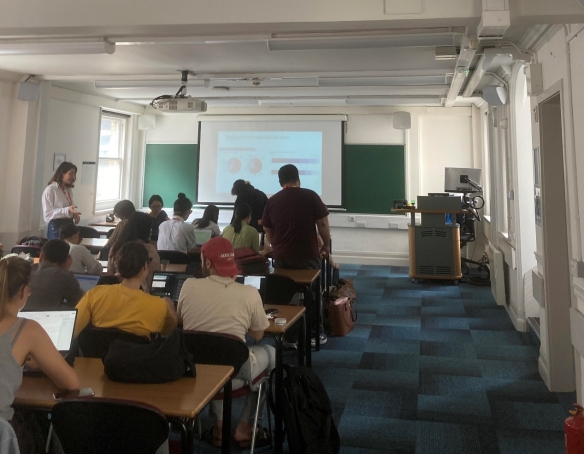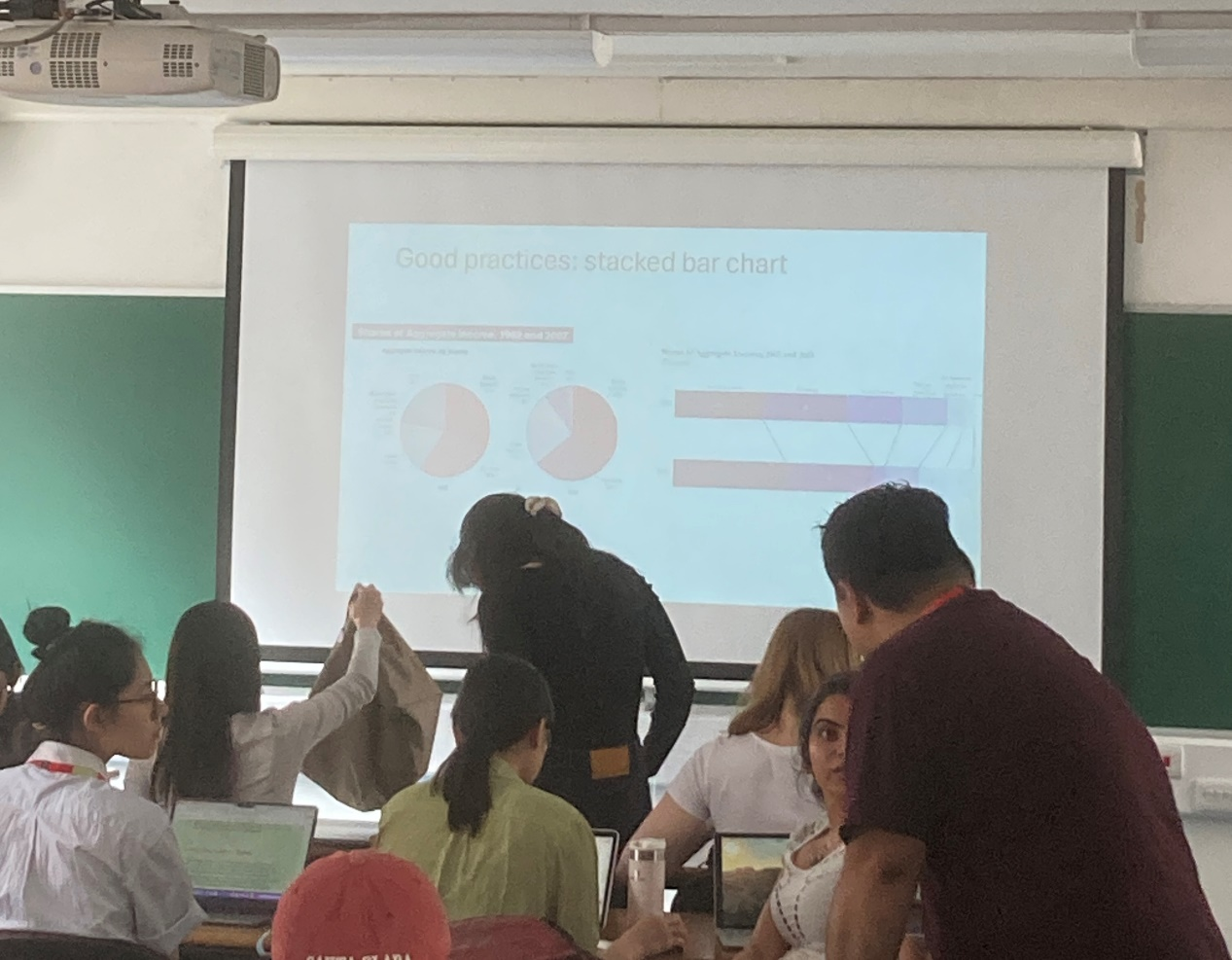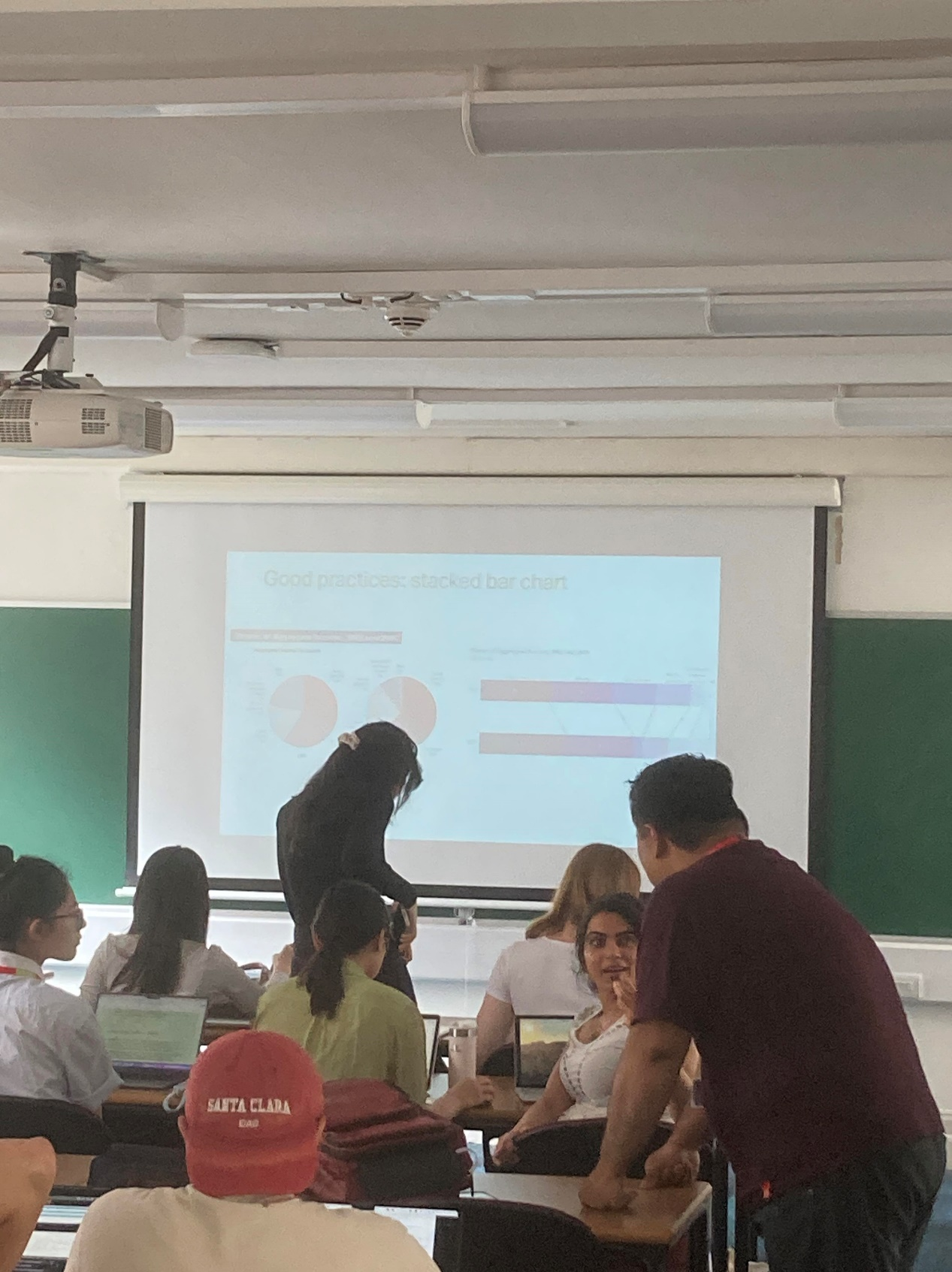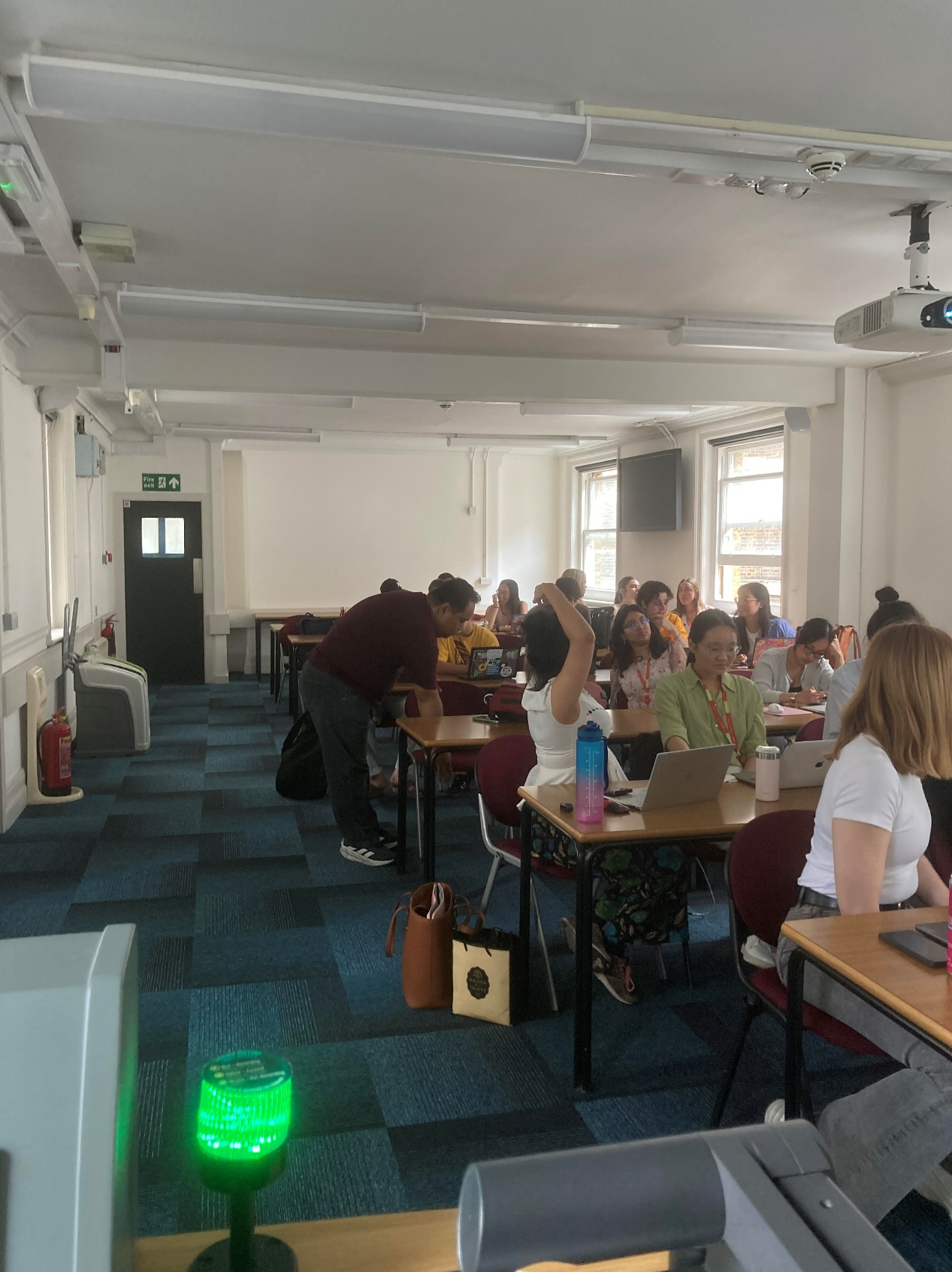The Globalization of Connection: Language, Supply Chain, Tariff, and Trade Wars
Date:
June 25th, 2025 (UTC +1)
Organizer:
Department of Economics, King's Business School, King's College London
Symposium Chair:
Personal Bio:
Dr. Dang is a Lecturer in Economics at the Department of Economics, King's Business School, King's College London. He is also an academic supervisor at the Institute of Finance and Technology, University College of London, and a chief examiner for the University of London International Programme (Econometrics). Before joining King's, he lectured and conducted research at the London School of Economics as an LSE Fellow in Economics, and at the University of Warwick as a postdoctoral fellow (in Economics). He completed his PhD in Economics at the University of Nottingham in 2018. He uses both theory and data to answer questions at the intersection of economics and public policies. His research interests include Development Economics, Public Economics, and Applied Econometrics. His current research focuses on the economics of nonprofit organizations, financial data, public good provision (housing, security, preferential tax treatment, and public procurement), and innovation.
Background:
In an increasingly interconnected world, globalization has transformed industries, reshaped economies, and altered geopolitical landscapes. This symposium will explore the intricate web of global connections, focusing on the role of language in cross-border trade, the vulnerabilities of supply chains, the impact of tariffs, and the escalating complexities of trade wars. As nations impose protectionist measures and businesses navigate shifting policies, understanding these dynamics is crucial for policymakers, economists, and industry leaders.
Through interdisciplinary discussions, we will examine how trade barriers and linguistic barriers intersect, how firms adapt to supply chain disruptions, and how economic nationalism influences global markets. This symposium invites researchers and practitioners to present insights on trade policies, corporate strategies, and the evolving landscape of globalization. By fostering dialogue on these pressing issues, we aim to equip participants with knowledge to navigate the challenges and opportunities of a rapidly changing global economy.
Goal/Rationale:
Globalization has created unprecedented economic interdependence, yet it also exposes vulnerabilities in language barriers, supply chain fragility, tariff impositions, and trade conflicts. Recent geopolitical tensions, pandemic-induced disruptions, and shifts in economic policies have exacerbated these challenges, highlighting the need for resilient global strategies. Trade wars between major economies, Brexit-induced tariff changes, and linguistic misunderstandings in international negotiations all contribute to inefficiencies, increased costs, and reduced cooperation.
To address these issues, research must explore innovative solutions, such as AI-driven translation for international business, blockchain for transparent supply chains, and adaptive trade policies to mitigate economic shocks. Recent advances in digital trade, automation, and regional trade agreements provide opportunities for fostering stability and efficiency.
Potential Research Questions
- How do language barriers affect international trade negotiations and business transactions?
- What role does AI play in overcoming linguistic challenges in global commerce?
- How have recent trade wars impacted supply chain resilience and business strategy?
- What policies can mitigate the negative effects of tariffs on global trade?
- How can blockchain technology enhance supply chain transparency and security?
Call for Papers
This symposium explores the evolving landscape of globalisation, focusing on the intersections of language, supply chains, tariffs, and trade wars. We invite researchers and practitioners to contribute insights on the economic, political, and technological dimensions of these issues.
- Language and Trade – The role of linguistic barriers in negotiations, contracts, and market access.
- Supply Chain Resilience – Strategies for mitigating disruptions caused by trade conflicts, pandemics, and geopolitical shifts.
- Tariffs and Trade Policies – The impact of protectionist policies, regional trade agreements, and retaliatory tariffs.
- Technological Innovations – AI, blockchain, and automation in trade and supply chain management.
- Economic and Political Implications – The broader consequences of trade wars and shifting global alliances.
Participants will have the opportunity to present research, engage in discussions, and collaborate on solutions to address global trade challenges. We welcome theoretical and empirical contributions from economics, business, political science, and related fields.
Topics
The main topics of this symposium are listed below.
Political Science- International Relations and Global Governance
- Political Economy and Digital Finance
- Climate Policy and Environmental Politics
- Cybersecurity and Digital Governance
- Human Rights and Migration Policy
- Political Philosophy and Ethics in AI
- Public Policy and Social Movements
- Political Polarization and Media Influence
- Public Administration and Domestic Policy
- Cyber Law and Digital Privacy
- AI Ethics and Intellectual Property
- Environmental Law and Climate Policy
- Human Rights and Social Justice
- Labor Law and Gig Economy
- Consumer Protection and Data Security
- Criminal Law and Digital Crime
- Property Law and Blockchain Applications
- Public Health Law and Policy
- Media Law and Freedom of Information
Meanwhile, submissions aligned with the overall conference theme are also welcome.
Culture & Sociology- Digital Sociology
- Sociology of Climate Change
- Migration and Globalization
- AI and Society
- Sociology of Technology
- Social Media Impact
- Post-Colonial Sociology
- Sociology of Mental Health
- Inequality and Social Justice
- Gender Studies in Sociology
- Core Fields (e.g., Theoretical Sociology, Historical Sociology)
- Specialized Areas (e.g., Urban Sociology, Criminology, Rural Sociology)
- Exercise Physiology and Performance Optimization
- Sports Nutrition and Metabolism
- Injury Prevention and Rehabilitation
- Strength and Conditioning Techniques
- Ethics in Sports and Fair Play
- Human Kinetics and Motor Skills
- Sports Sociology and Cultural Identity
- Gender Studies in Sports
- Inclusion and Accessibility in Sports
- Mental Health in Competitive Sports
- Sports Policy and Governance
- Sports Psychology and Motivation
- Digital Pedagogy and E-Learning
- Sports Pedagogy and Physical Literacy
- Inclusive Education and Social Learning
- Trauma-Informed Teaching
- Gamification in Education
- EdTech and Artificial Intelligence in Learning
- Mindfulness in Education
- STEM and STEAM Education
- Culturally Responsive Teaching
- Collaborative Learning Strategies
- Experiential and Cooperative Pedagogy
- Differentiated Learning Approaches
- Assessment for Learning
- Multisensory and Physical Education
Submission
All submitted papers should report original and unpublished work, experimental or theoretical, and are not under consideration for publications elsewhere. All papers should be no less than 4 pages in length and must strictly follow the format of the symposium template. All papers are subject to reviews and edits. Prospective authors are kindly invited to submit full text papers that includes title, abstract, introduction, tables/figures and references. Other styles of papers are not accepted. Please submit your papers in both .doc/.docx AND .pdf formats as attachments via email to [email protected] by the given deadline. It is unnecessary to submit an abstract in advance.
Publication
Accepted papers of the symposium will be published in Lecture Notes in Education Psychology and Public Media (Print ISSN 2753-7048), and will be submitted to Conference Proceedings Citation Index (CPCI), Crossref, CNKI, Portico, Google Scholar and other databases for indexing. The situation may be affected by factors among databases like processing time, workflow, policy, etc.
The papers will be exported to production and publication on a regular basis. Early-registered papers are expected to be published online earlier.
This symposium is organized by ICGPSH 2025 and it will independently proceed the submission and publication process
Highlights:
The "Data Visualisation: A Workshop on Linking the Language of Trade and Data" offered participants an engaging and practical exploration of how visual storytelling can bridge the gap between complex trade data and accessible communication. Designed for students and professionals in business, economics, and policy, the workshop emphasized the importance of translating raw data into meaningful narratives that inform, persuade, and inspire action.
The session began by unpacking the foundational principles of data visualisation, including clarity, accuracy, and audience awareness. Participants were introduced to key visualisation tools and techniques, with a focus on how to represent trade flows, market dynamics, and economic indicators effectively. Through hands-on exercises, attendees learned to critically evaluate visualisations for bias, distortion, and communicative value.
A central theme of the workshop was the "language of trade"—the terminology, metrics, and patterns that define global commerce—and how this language can be made more accessible through visual formats. Participants explored case studies where data visualisation played a pivotal role in shaping trade policy, business strategy, and public understanding.
The workshop also encouraged interdisciplinary thinking, drawing connections between data science, economics, and communication. Participants worked in small groups to create their own visualisations using real-world trade datasets, receiving feedback on both technical execution and narrative coherence.
By the end of the session, attendees had developed a toolkit for crafting compelling, data-driven stories that resonate with diverse audiences. The workshop concluded with a discussion on ethical considerations in data representation and the future of visual communication in a data-saturated world.




Access to Symposium:ICGPSH 2025 Symposium -- London - YouTube
Ways to Participate
Attendance Onsite
The symposium welcomes participants to attend on-site and share the innovative experiences and researches with the group. Therefore, we provide some general information about the visa application. If you want to attend the symposium on-site, please email the symposium committee: [email protected].
VISA:
https://www.gov.uk/In order to ensure the information is correct and up to date, there may be changes which we are not aware of. And different countries have different rules for the visa application. It is always a good idea to check the latest regulations in your country. This page just gives some general information of the visa application.
UK Visa Information
-
What you need to do
- Check if what you plan to do in the UK is allowed as a Standard Visitor.
- Check you meet the eligibility requirements.
- Check if you need to apply for a visa to visit the UK.
- Apply for a Standard Visitor visa online - if you need one.
Check you meet the eligibility requirements
You must have a passport or travel document to enter the UK. It should be valid for the whole of your stay.
-
You must be able to show that:
- You'll leave the UK at the end of your visit.
- You're able to support yourself and your dependants during your trip (or have funding from someone else to support you).
- You're able to pay for your return or onward journey (or have funding from someone else to pay for the journey).
- You'll not live in the UK for extended periods through frequent or successive visits, or make the UK your main home.
-
Check if you need a visa to visit the UK
Depending on your nationality, you'll either:
- Have to apply for a Standard Visitor visa before you travel to the UK.
- Be able to visit the UK for up to 6 months without needing a visa.
You can check if you need a visa before you apply.
If you do not need a visa, you must still meet the Standard Visitor eligibility requirements to visit the UK. You may be asked questions at the UK border about your eligibility and the activities you plan to do.












